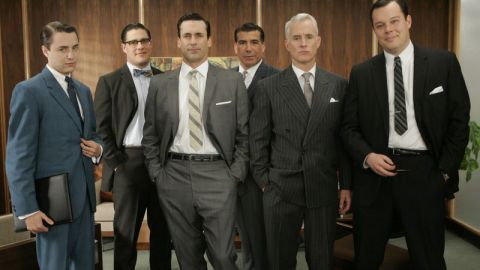The Last Men on Top?

There were two very interesting things about a recent Pew Research Center study — the contents of the report and the type of reactions it received. First the findings: working mothers are the breadwinners in 40 percent of U.S. households with children. Now here’s a reaction from the conservative commentator Erick Erickson on FOX News:
When you look at biology — when you look at the natural world — the roles of a male and a female in society and in other animals, the male typically is the dominant role. The female, it’s not antithesis, or it’s not competing, it’s a complementary role. We’ve lost the ability to have complementary relationships… and it’s tearing us apart.
Erickson, not surprisingly, has been dealing with backlash from this comment ever since he said it. And yet, he is certainly not alone in his fear that traditional masculinity is being threatened. For one thing, it is true that men have taken a beating in the job market in recent years, during the so-called “Mancession.” However, 80 percent of the jobs created in the recovery have also gone to men.
What’s the Big Idea?
Erickson’s fear, however, is a deep-seated one that can be traced back to the rise of the feminist movement nearly half a century ago. Our culture has an infatuation with the societal changes that started to occur in the early 60’s, most notably expressed by the popularity of the show Mad Men. One of the most striking features of the show is how different the treatment of women by men is from today. But, as Susan Jacoby points out in an interview on Jeff Schechtman’s Specific Gravity, the culture on Mad Men reflects what life was like only for abnormally wealthy men.
In the interview below, Jacoby raises questions about what toxic effects the lifestyle portrayed on Mad Men had for other men of the time as well. She explains, drawing on economic information, cultural analysis and personal experience from her own childhood how the total freedom and power possessed by wealthy white men at the time created an “aspirational culture”, which set unfair standards and placed undue burdens. She suggests that the effects of radical feminist movements at the time and into the 1970s explain the societal changes of women in the workforce are overstated.
Rather, Jacoby says, economic factors drove that change. For men, pressure to aspire to the middle class, for example, having the status symbol of having a wife who does not work (read: have to work), was both unrealistic and damaging to the men of the this generation as a whole.
Listen here:
Check out more of Jeff Schechtman’s Specific Gravityhere.
Image courtesy of Shutterstock





